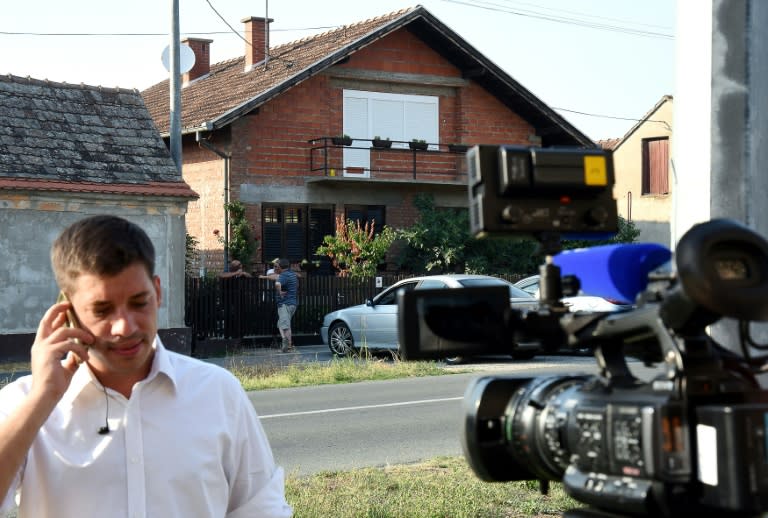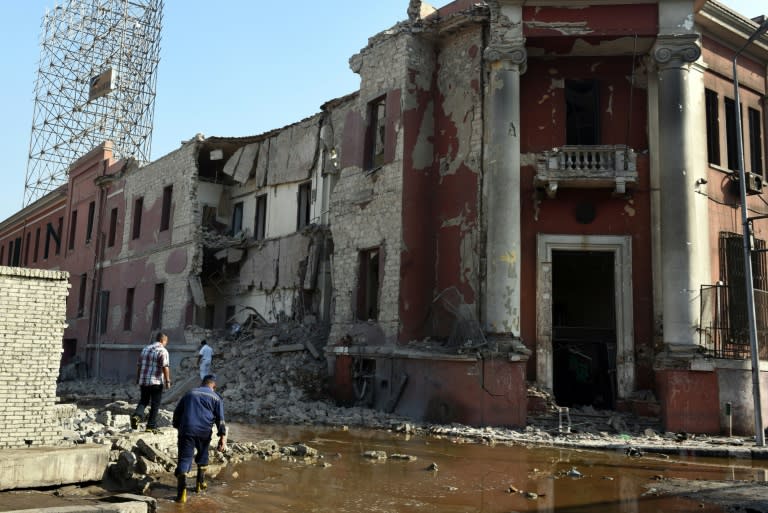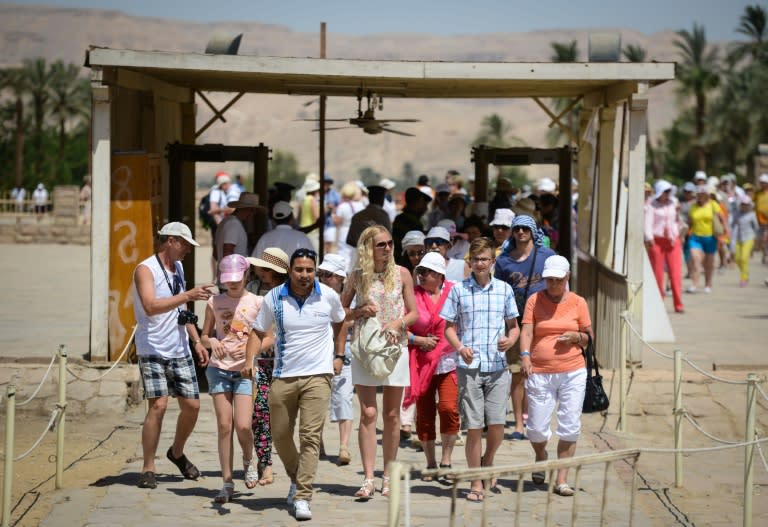Egypt beheading blow to tourism, may boost military aid
The Islamic State group's apparent beheading of a Croatian engineer in Egypt threatens to scare off tourists and foreign investment but could boost Western support for Cairo's fight against jihadists, analysts say. The purported execution of Tomislav Salopek, who worked for a French geoscience company, is likely to encourage the policy of Washington and Paris of supplying weapons to Cairo to battle extremists, according to experts. The West has been accused of turning a blind eye to human rights violations under President Abdel Fattah al-Sisi, the ex-army chief who has overseen a deadly crackdown on supporters of his Islamist predecessor Mohamed Morsi. Egypt, the most populous Arab country, has one of the region's most powerful and well-equipped militaries that is battling a raging jihadist insurgency. It was further boosted by recent deliveries of F-16 warplanes by Washington and Rafale fighter jets from France. Experts said the Egyptian affiliate of IS called "The Sinai Province", which claimed Wednesday to have beheaded Salopek, appeared to have changed its strategy in its fight against the Egyptian authorities. After launching spectacular attacks targeting security forces in its bastion in North Sinai in the past two years, the group is now adopting tactics similar to the main IS group in Iraq and Syria -- abducting and beheading foreigners. Salopek's abduction appeared aimed at threatening tourists and foreign employees of Western firms -- two cornerstones of an economy battered by years of political unrest since the 2011 uprising that ousted then-president Hosni Mubarak. - Western embassies cautious - IS had already claimed a car bomb attack against the Italian consulate in Cairo on July 11 and the killing of an American employee of oil company Apache last year in the Western desert, in an area not far from where Salopek was abducted. "For Egyptian authorities, this execution means a further radicalisation (of the IS affiliate) and extending its actions to foreigners, implying a concentration on economic targets to further weaken the regime," said Mathieu Guidere, Middle East expert at France's University of Toulouse. Economists said that although the number of foreigners working in Egypt is not high, the latest incidents have raised alarm. "The attacks have made embassies and companies strengthen the protection of embassies and residences of their staff and employees of companies especially those in the oil and gas sector," said Angus Blair, chief executive officer of Cairo-based think-tank Signet. Embassy officials said that since the jihadists announced the killing of Salopek they had received numerous phone calls from foreign firms asking for new security instructions. - Tourism at risk - Tourist arrivals have already dipped since the anti-Mubarak uprising, and the beheading of a Westerner may further discourage visitors. "There will be a negative impact but not big," said Hossam Hazza, a member of Egypt's Chamber of Tourism. "But this incident reminds us that security in tourist areas must be strengthened." A massacre appeared to have been narrowly avoided on June 10 at the famed Karnak temple in Luxor, when assailants believed to be jihadists tried to carry out an attack at the ancient complex. About 10 million tourists visited Egypt in 2014, down sharply from a 2010 figure of almost 15 million people who visited the country with its archaeological sites and Red Sea resorts. Several tourists AFP spoke to on Thursday were unaware of Salopek's beheading, while others said they knew jihadists operated in Egypt. "The latest incident will keep some elderly tourists away, but I think Egypt is still safe to travel as long as one sticks to the travel advisories," said Greg Esser, a 30-year-old from Washington, after touring the Egyptian Museum of Antiquities near Cairo's Tahrir Square. "I am travelling only in Cairo and now that I know of this incident I will be extra careful," said a 20-year-old tourist who gave her name only as Sam. The impact of Salopek's execution on Egypt's economy may still be unclear, but experts say it will boost the flow of arms to Sisi's regime in his "war against terrorism", which he has often proclaimed at several international forums. "Under Sisi, Egypt aims to position itself as the last bulwark against terrorism and attract international financial and military support while ignoring human rights violations," said Karim Bitar, Arab affairs expert at the Paris-based Institute of International and Strategic Relations. But Salopek's purported beheading "once again illustrates the impasse of war and all out repression in Egypt, which on the contrary is strengthening Daesh and its affiliates," he said, using an Arabic acronym for IS.






